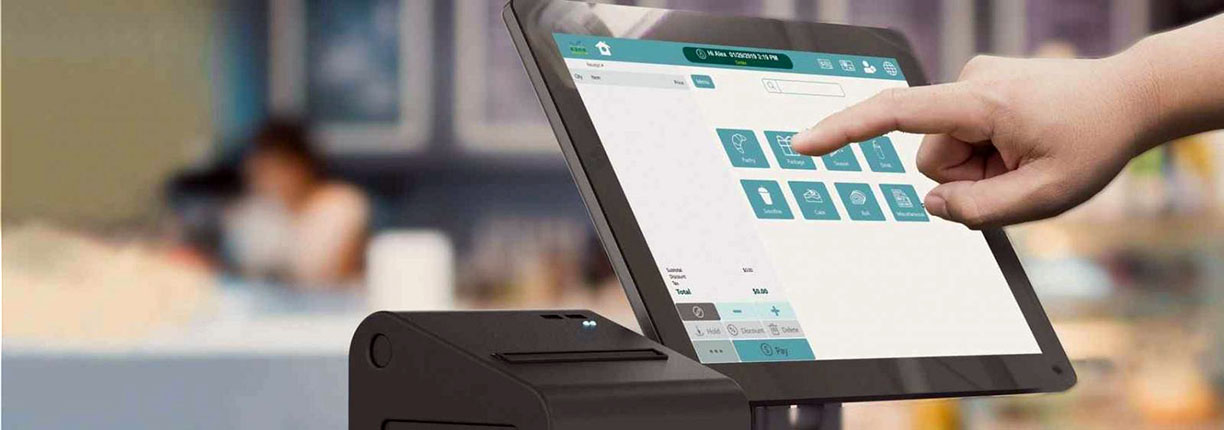We’ve all heard of the amazing benefits that POS systems have to offer brick and mortar stores, but what if you have a website as well? Or if you’re strictly an e-commerce store? A POS system works for both options, and in fact, can act as a much-needed bridge between website and physical location. Keep reading to learn why you should use a POS plugin on your website for a more streamlined and unified payment processing experience.
Table of Contents
Are In-Store and Website Payments Integrated?
Take a look at your current payment processing systems. Are you using two different systems for in-store and online operations? If so, you’re probably used to late nights spent checking balance sheets, adding up online sales, and manually entering them into your software. This is incredibly tedious and downright unnecessary if you use a POS system on your site.
The best POS system for your business is one that effectively bridges the gap between in-store and online sales. With a single payment processing software, there’s no such thing as manual counts anymore. You won’t have to download data or manually enter anything; every sale is accounted for in the POS software so you can rest easy knowing the numbers are accurate.
When things are synchronized in your business, you’ll find the entirety of your operations benefits from it. Think of how much time you could save if you didn’t have to count online sales manually and enter them into your POS software. That’s more time you could spend on running and expanding your business.
What’s Your Current Inventory Mangement System?
If your inventory management systems for online and in-store inventory aren’t synchronized, you’re probably dealing with a lot of headache trying to match up the numbers. A POS system will track everything in one software program, in real-time. Never worry about whether or not your inventory numbers online match what’s in-store; the software will keep the numbers up to date, and even notify you when stock runs low.
This further increases the efficiency of your business overall, and since proper inventory management is so vital to your business’s success, you’ll want a program that can handle it all for you. After all, who wants to perform manual inventory counts every day? Counting grows tiresome quickly, and this is where mistakes happen.
Unify your inventory management systems with a POS solution so you can stay on top of things. Your counts will (almost) always be 100% accurate, and the only time you really need to worry about an error is when someone inputs the wrong stock numbers into the system!
Store and Site Should Be Synchronized
For a more streamlined business experience, your site and store should be synchronized as much as possible. Inventory, payment processing, and marketing should all be unified under one software program for maximum efficiency.
Not only does using several programs at once become confusing and difficult to manage, but it can also become costly very quickly. If you’re paying for inventory management and payment processing separately, you’re doing yourself and your business a disservice. Unify operations with a POS system, and you’ll see just how efficient your business can become.
Simpler Analytics
While there are certain plugins that help track web traffic, there are few tools that allow for an accurate picture of how much product you’re moving from your site and how much money it’s bringing in each month. This is where a POS system comes in handy. With simple analytics tools, you’ll be able to look at your current sales or sales ranging back a year from the current date.
Knowing how much money your site is making and what products are selling is crucial information when you’re expanding operations or creating marketing campaigns. Without detailed analytics, you won’t know how your site is performing.
Site analytics will be able to sync with those of your brick and mortar location as well, giving you a clear picture of how the business as a whole is performing. Never underestimate the power of excellent analytics; it can provide you with information you otherwise wouldn’t have access to, and can help you make big decisions for your business or website.
Customer Database
One of the most important features of a POS system is the customer database. You’ll be able to collect customer information such as name, address, email address and more from your POS software; effectively creating a detailed database on your customers and allowing you to track their buying habits.
Once you know what items your customers like to purchase, you can create customized ad campaigns to appeal to their particular tastes; thereby improving the chances of that customer actually returning to purchase more merchandise from you. There’s simply no replacement for a detailed customer database!
Conclusion
Your POS system should help synchronize in-store and online sales and inventory management, as well as provide you with a central point from which to manage other aspects of your business. This feature-rich software is a necessity to the modern business, whether you’re strictly e-commerce sales or a brick and mortar shop.








